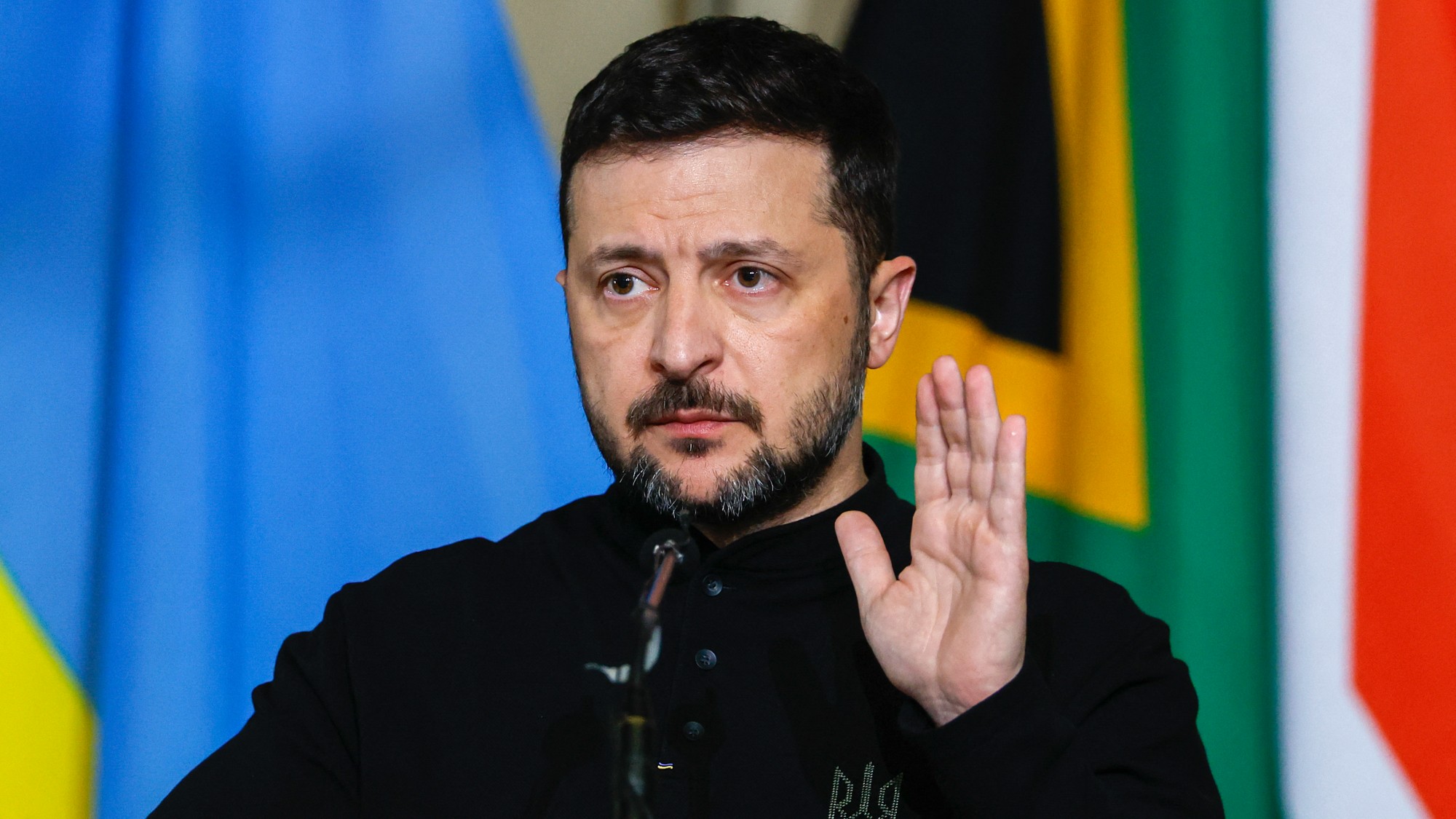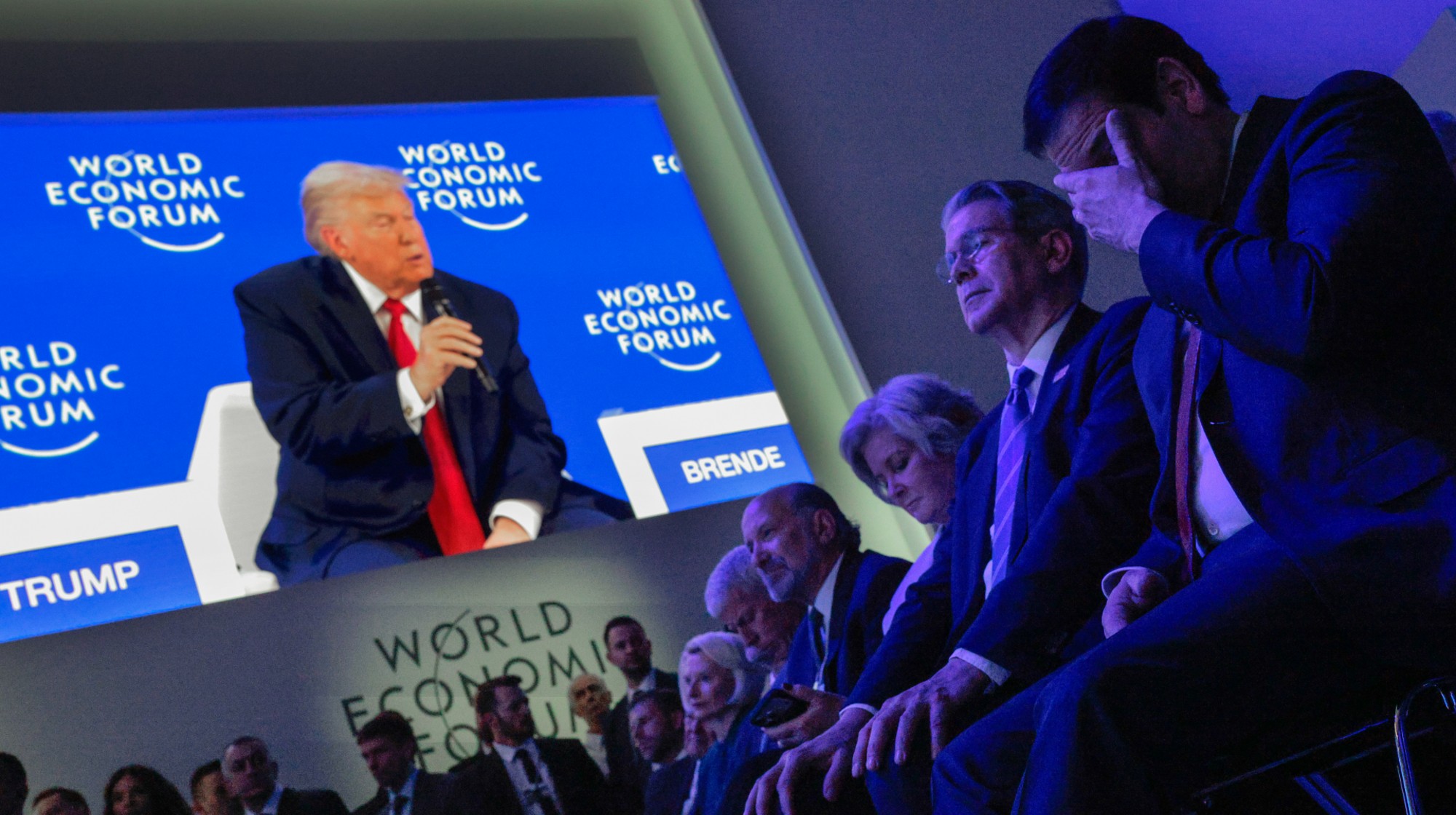Ukraine peace deal: what precedent would land concessions set?
Kyiv has rejected US plans for peace, which reportedly include recognition of Crimea as Russian territory

A free daily email with the biggest news stories of the day – and the best features from TheWeek.com
You are now subscribed
Your newsletter sign-up was successful
Donald Trump has accused Volodymyr Zelenskyy of harming peace negotiations after the Ukrainian president said Kyiv would not recognise Russian control of Crimea.
The future of Crimea is thought to be at the centre of Trump's peace plan for the region, despite Zelenskyy repeatedly ruling out recognising Russian control of the region, which was annexed by Moscow in 2014.
The exact terms of the deal are yet to be revealed, but reports, first published by Axios, suggest they include the US recognising Crimea as a legal part of Russia.
The Week
Escape your echo chamber. Get the facts behind the news, plus analysis from multiple perspectives.

Sign up for The Week's Free Newsletters
From our morning news briefing to a weekly Good News Newsletter, get the best of The Week delivered directly to your inbox.
From our morning news briefing to a weekly Good News Newsletter, get the best of The Week delivered directly to your inbox.
Writing on Truth Social, Trump claimed a deal to end the war was "very close", but that Zelenskyy's refusal to accept US terms "will do nothing but prolong" the conflict.
Vice President J.D. Vance gave some further detail over the US vision for a peace deal earlier this week, saying it would "freeze the territorial lines… close to where they are today".
He said the deal would mean Ukraine and Russia "are both going to have to give up some of the territory they currently own".
What did the commentators say?
For the US to recognise Crimea as part of Russia would be a major reversal of Washington's post-war policy, said The Guardian. The White House would be "effectively endorsing a Russian effort to redraw the borders of Europe by force".
A free daily email with the biggest news stories of the day – and the best features from TheWeek.com
And for Zelenskyy, renouncing Crimea as an indivisible part of Ukraine would be "unconscionable". It is also a move he has rejected several times as politically and constitutionally impossible, said the BBC.
"There's nothing to talk about here," said Zelenskyy on Tuesday. "This is against our constitution." Indeed, Article 2 of the Ukrainian constitution states that the country's sovereignty "extends throughout its entire territory", which "within its present border is indivisible and inviolable". "Any change to Ukraine's territory has to go to a national referendum, which must be authorised by the Ukrainian parliament," said the BBC.
Crimea is often wrongly thought of as a "special case" by "well-intentioned advocates of an urgent negotiated peace", said Chatham House, partly due to the erroneous view that the region is "more historically Russian" and "predominantly Russia-leaning". But these arguments "dangerously fail to address a fundamental point" – that a Crimea concession would not only be a change to the recognised 1991 borders, but "a reward to Russia for its aggression". It would "not only fail to deter the Russian regime’s campaigns to steal the territory and sovereignty of its neighbours. It would confer legitimacy on them."
Legitimising a land grab goes far beyond Ukraine, said the Robert Lansing Institute. Far from ending the war, such a decision "could open the floodgates to a world where borders are drawn by tanks, not treaties".
What next?
"There is no sign a deal is actually close," said Axios, particularly now that Ukraine has rejected Trump's plan. Kyiv sees Trump's proposals as "heavily biased toward Russia, with Moscow getting clear-cut wins and Kyiv only vague promises".
Any further progress was also stalled when US Secretary of State Marco Rubio pulled out of Ukraine talks taking place in London on Wednesday. This happened "when it became clear that Ukraine wanted to discuss Trump's previous proposal of a 30-day ceasefire rather than his new peace framework".
Sorcha Bradley is a writer at The Week and a regular on “The Week Unwrapped” podcast. She worked at The Week magazine for a year and a half before taking up her current role with the digital team, where she mostly covers UK current affairs and politics. Before joining The Week, Sorcha worked at slow-news start-up Tortoise Media. She has also written for Sky News, The Sunday Times, the London Evening Standard and Grazia magazine, among other publications. She has a master’s in newspaper journalism from City, University of London, where she specialised in political journalism.
-
 What to know before filing your own taxes for the first time
What to know before filing your own taxes for the first timethe explainer Tackle this financial milestone with confidence
-
 The biggest box office flops of the 21st century
The biggest box office flops of the 21st centuryin depth Unnecessary remakes and turgid, expensive CGI-fests highlight this list of these most notorious box-office losers
-
 The 10 most infamous abductions in modern history
The 10 most infamous abductions in modern historyin depth The taking of Savannah Guthrie’s mother, Nancy, is the latest in a long string of high-profile kidnappings
-
 Greenland’s capital becomes ground zero for the country’s diplomatic straits
Greenland’s capital becomes ground zero for the country’s diplomatic straitsIN THE SPOTLIGHT A flurry of new consular activity in Nuuk shows how important Greenland has become to Europeans’ anxiety about American imperialism
-
 US, Russia restart military dialogue as treaty ends
US, Russia restart military dialogue as treaty endsSpeed Read New START was the last remaining nuclear arms treaty between the countries
-
 What happens now that the US-Russia nuclear treaty is expiring?
What happens now that the US-Russia nuclear treaty is expiring?TODAY’S BIG QUESTION Weapons experts worry that the end of the New START treaty marks the beginning of a 21st-century atomic arms race
-
 Which way will Trump go on Iran?
Which way will Trump go on Iran?Today’s Big Question Diplomatic talks set to be held in Turkey on Friday, but failure to reach an agreement could have ‘terrible’ global ramifications
-
 Ukraine, US and Russia: do rare trilateral talks mean peace is possible?
Ukraine, US and Russia: do rare trilateral talks mean peace is possible?Rush to meet signals potential agreement but scepticism of Russian motives remain
-
 Trump backs off Greenland threats, declares ‘deal’
Trump backs off Greenland threats, declares ‘deal’Speed Read Trump and NATO have ‘formed the framework for a future deal,’ the president claimed
-
 The rise of the spymaster: a ‘tectonic shift’ in Ukraine’s politics
The rise of the spymaster: a ‘tectonic shift’ in Ukraine’s politicsIn the Spotlight President Zelenskyy’s new chief of staff, former head of military intelligence Kyrylo Budanov, is widely viewed as a potential successor
-
 How oil tankers have been weaponised
How oil tankers have been weaponisedThe Explainer The seizure of a Russian tanker in the Atlantic last week has drawn attention to the country’s clandestine shipping network